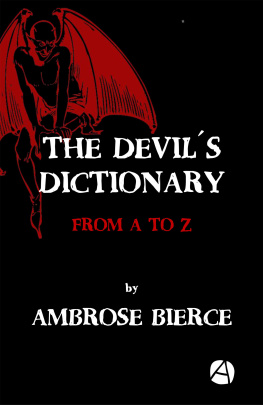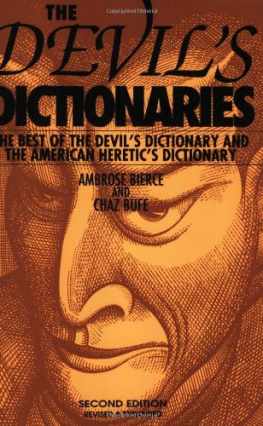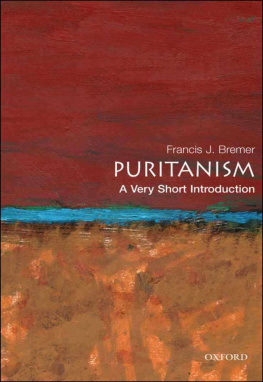THE GIFT AND ITS PARADOXES
Classical and Contemporary Social Theory
Series Editor: Stjepan G. Mestrovic, Texas A&M University, USA
Classical and Contemporary Social Theory publishes rigorous scholarly work that re-discovers the relevance of social theory for contemporary times, demonstrating the enduring importance of theory for modern social issues. The series covers social theory in a broad sense, inviting contributions on both classical and modern theory, thus encompassing sociology, without being confined to a single discipline. As such, work from across the social sciences is welcome, provided that volumes address the social context of particular issues, subjects, or figures and offer new understandings of social reality and the contribution of a theorist or school to our understanding of it. The series considers significant new appraisals of established thinkers or schools, comparative works or contributions that discuss a particular social issue or phenomenon in relation to the work of specific theorists or theoretical approaches. Contributions are welcome that assess broad strands of thought within certain schools or across the work of a number of thinkers, but always with an eye toward contributing to contemporary understandings of social issues and contexts.
Also in the series
The Puritan Culture of Americas Military
U.S. Army War Crimes in Iraq and Afghanistan
Ronald Lorenzo
ISBN 978-1-4724-1982-8
A Genealogy of Social Violence
Founding Murder, Rawlsian Fairness, and the Future of the Family
Clint Jones
ISBN 978-1-4724-1722-0
Liquid Sociology
Metaphor in Zygmunt Baumans Analysis of Modernity
Edited by Mark Davis
ISBN 978-1-4094-3887-8
The Gift and its Paradoxes
Beyond Mauss
OLLI PYYHTINEN
University of Turku, Finland
ASHGATE
Olli Pyyhtinen 2014
All rights reserved. No part of this publication may be reproduced, stored in a retrieval system or transmitted in any form or by any means, electronic, mechanical, photocopying, recording or otherwise without the prior permission of the publisher.
Olli Pyyhtinen has asserted his right under the Copyright, Designs and Patents Act, 1988, to be identified as the author of this work.
Published by
Ashgate Publishing Limited A
Wey Court East
Union Road S
Farnham
Surrey, GU9 7PT
England
Ashgate Publishing Company
110 Cherry Street
Suite 3-1
Burlington, VT 05401-3818
USA
www.ashgate.com
British Library Cataloguing in Publication Data
A catalogue record for this book is available from the British Library
The Library of Congress has cataloged the printed edition as follows:
Pyyhtinen, Olli, 1976
The Gift and its paradoxes : beyond Mauss / by Olli Pyyhtinen.
pages cm. (Classical and contemporary social theory)
Includes bibliographical references and index.
ISBN 978-1-4094-5097-9 (hardback) ISBN 978-1-4094-5098-6 (ebook) ISBN 978-1-4724-0474-9 (ebook) 1. Gifts. 2. Mauss, Marcel, 1872-1950. Essai sur le don. 3. Critical theory. 4. Social sciencesPhilosophy. I. Title.
GT3040.P99 2014
394dc23
2013032357
ISBN 9781409450979 (hbk)
ISBN 9781409450986 (ebk-PDF)
ISBN 9781472404749 (ePUB-PDF)
Contents
Series Editors Preface
Marcel Mausswho was Durkheims nephew, collaborator, and disciplefirst published The Gift in 1925, but the book did not gain traction until the 1950s. Its insights are profound: that the social (not private) obligations to give, receive, and reciprocate are the fundamental building blocks of social solidarity. Mausss ideas have been discussed primarily by philosophers, anthropologists, and intellectuals ranging from Jacques Derrida to Jean Baudrillard and his concept of the counter-gift. Ironically, Mausss sociological theory of the gift was never taken seriously by sociology. For the most part, the discipline of sociology has thrown out Mauss and Durkheim with the bathwater of Talcott Parsons and structural-functionalism since the 1970s. This is the historical and cultural context for the publication of Olli Pyyhtinens book on the gift in the year 2014.
Given this context, Pyyhtinens approach to the gift necessarily begins with reactions by anthropologists, philosophers, and intellectuals to Mauss and gift-giving. Pyyhtinen admits that he is more of a critic of Mausss theory than its promulgator. He questionsin the manner of philosophersthe meaning of the object in gift-exchange. He seeks out and finds paradoxes and ironies in gift-giving. For example, he analyzes the social type of the parasite as one who takes but does not reciprocate the gift. He points out, correctly, that there is a tendency for gifts to be regarded as gratuitouswith no obligation to repay or form social bonds. He discusses how gifts can be destructive and dangerous as well as good and as promoting social bonds. Pyyhtinen illustrates these and many other points by analyzing films, novels, and popular culture vis--vis the gift.
The outcome of his analysis is thought-provoking. For example, Mauss wrote that the object that the worker gave to the boss, corporation, and nation was ultimately his or her life. Therefore, Mauss reasoned that the boss, corporation, and nation owed a debt to workers that could never be fully repaid, but certainly included security, health care, and other provisions that are characterized today by some politicians as a socialist agenda. On the other hand, as Pyyhtinen observes, the so-called welfare state is regarded by many today as parasitic. Who is right? Pyyhtinen does not come down on one side or the other, and neither do I. The more important point is that this socio-political issue should be framed in the context of the social theory of the gift.
Similarly, Pyyhtinen makes Mauss and Durkheim seem somewhat nave in their arguments that the gift is never gratuitous, and always makes the recipient indebted to the giverregardless of the object in question, and of the identity of the giver and recipient (ranging from nations and corporations to family members and individuals). Nowadays, gifts are often gratuitous, with no thought given to the effects on social structure. This is where Baudrillards concept of the counter-gift is illuminating: the act of taking the gift as a form of sabotage to the social system which is perceived to disregard the individual totally. When neither side in the gift-exchange relationship feels an obligation to the other, the result is the sabotage of the counter-gift. For example, the Internet revolution has opened up the sphere of sharing films, music, and games that are the copyrighted works of artists and corporations. This sharing is labeled as piracy by those who believe that the objects in question are gifts to the larger community that obligate some sort of payment. But those who share gratuitously seem to believe that it is the artists and corporations who are the parasites and pirates. Again, discussions of this sort are typically not framed in the context of the theory of gift-giving, and perhaps they ought to be.
As I write this preface, much of the Western media is discussing the unprecedented spying by governments of individual phone records, emails, and other records that used to be considered private. In the context of the theory of the gift, this unprecedented, neo-Orwellian spying is made possible not only by technology, but by the erosion of the idea of the gift. Phone records are considered to be the property of telephone companies, not of the individuals who made the calls, and various contracts with email providers have created the subversive reality that ones thoughts and messages expressed in emails belong to Internet providers, not their authors. One gives ones phone calls and emails to corporations and governments, with no clear idea of the obligations that corporations and governments owe to the authors of these gifts. Of course, Mauss and Durkheim could not have foreseen our Internet, electronic, and nano revolutions. But one should perform the thought-experiment of asking what they would have thought of these developments vis--vis the gift.
Next page






